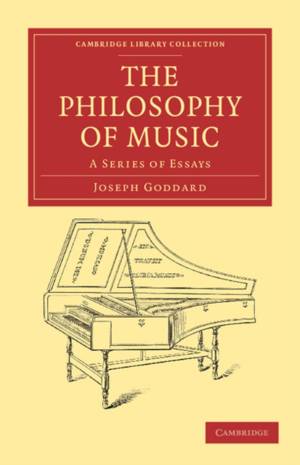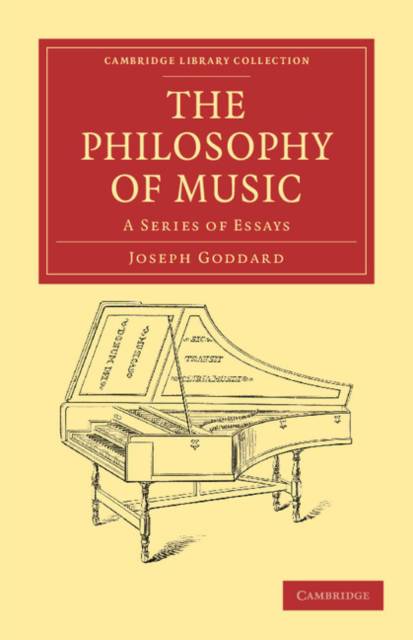
- Afhalen na 1 uur in een winkel met voorraad
- Gratis thuislevering in België vanaf € 30
- Ruim aanbod met 7 miljoen producten
- Afhalen na 1 uur in een winkel met voorraad
- Gratis thuislevering in België vanaf € 30
- Ruim aanbod met 7 miljoen producten
Zoeken
Omschrijving
Joseph Goddard (1833-1910) was a philosopher and historian of the music of the late eighteenth and early nineteenth centuries. In this collection of essays, first published in 1862, he argues that 'music is the most original and perfect offspring of the human mind'. He first demonstrates this by comparing music with the other fine arts in their expression of emotion, and shows music to have its roots in language, as both depend on principles of rhythm, tone and phrase. He then illustrates how these elements can express the full spectrum of human thought and morality, including truth, faith, imagination and intellect, and asserts that they stand above all other art forms in their ability to do so. Concluding with an analysis of how the laws of life, nature and the supernatural are manifested in music, this judicious work remains important in the fields of music philosophy and theory.
Specificaties
Betrokkenen
- Auteur(s):
- Uitgeverij:
Inhoud
- Aantal bladzijden:
- 174
- Taal:
- Engels
- Reeks:
Eigenschappen
- Productcode (EAN):
- 9781108038621
- Verschijningsdatum:
- 20/10/2011
- Uitvoering:
- Paperback
- Formaat:
- Trade paperback (VS)
- Afmetingen:
- 140 mm x 216 mm
- Gewicht:
- 226 g

Alleen bij Standaard Boekhandel
+ 106 punten op je klantenkaart van Standaard Boekhandel
Beoordelingen
We publiceren alleen reviews die voldoen aan de voorwaarden voor reviews. Bekijk onze voorwaarden voor reviews.











